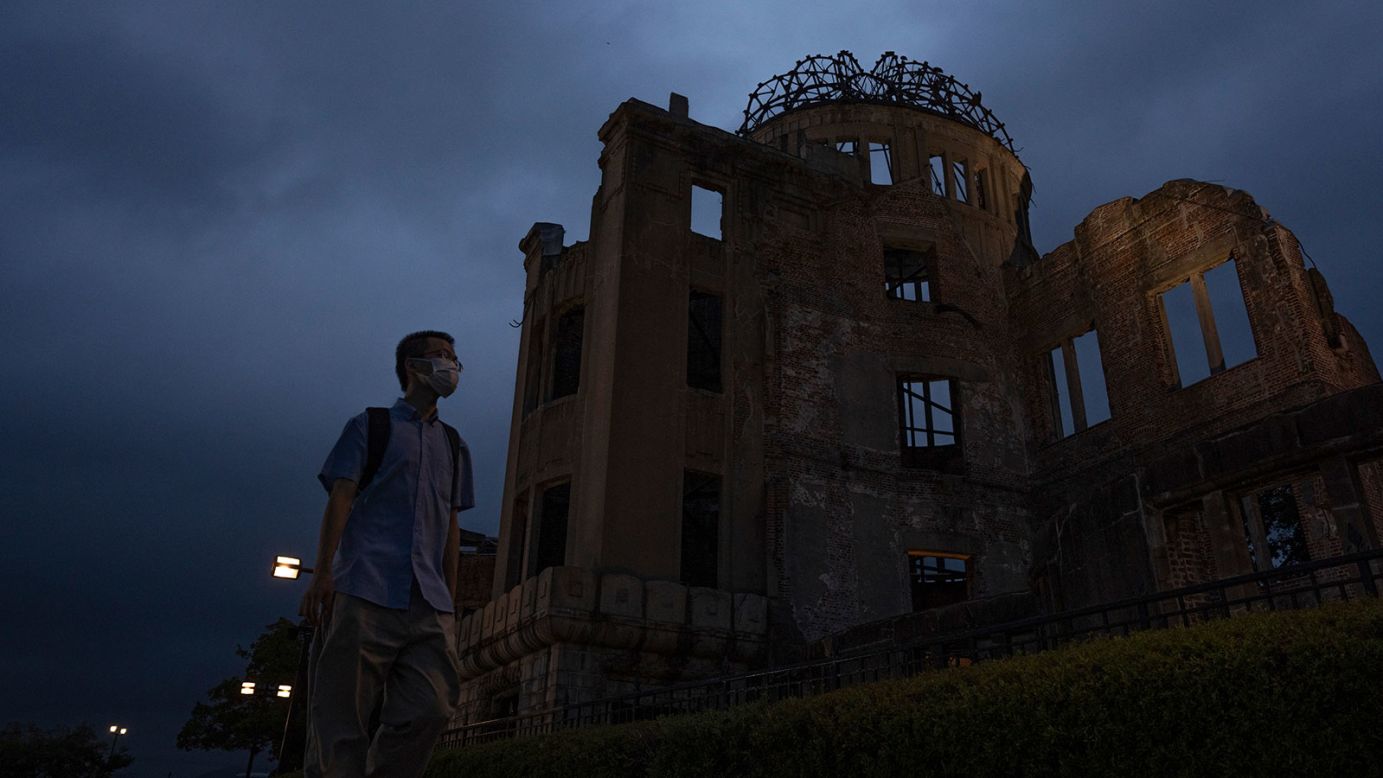Articles in this Cluster
06-08-2025
Japan marked the 80th anniversary of the atomic bombing of Hiroshima with a ceremony attended by officials from around the world, including Japanese Prime Minister Shigeru Ishiba. Hiroshima Mayor Kazumi Matsui warned of an 'accelerating trend toward military build-up' and called for the abolition of nuclear weapons. Survivors of the bombing shared their stories, highlighting the ongoing impact of the tragedy.
Entities: Hiroshima, Japan, Shigeru Ishiba, Kazumi Matsui, United States • Tone: neutral • Sentiment: negative • Intent: inform
06-08-2025
The article commemorates the 80th anniversary of the atomic bombing of Hiroshima and Nagasaki, highlighting the ongoing threat of nuclear weapons. Despite the devastating effects of the bombings, which killed over 110,000 people instantly and hundreds of thousands more in the years that followed, the world is now closer to seeing nuclear weapons used again than it has been in decades. The article cites rising tensions between nuclear powers, including the US, Russia, China, and North Korea, as well as the growing nuclear arsenals and abandonment of arms control agreements. Experts warn that the current security environment is increasingly severe, and the threat of nuclear catastrophe is more real than ever.
Entities: Hiroshima, Nagasaki, Japan, United States, Russia • Tone: urgent • Sentiment: negative • Intent: inform
06-08-2025
Russia has ended its moratorium on deploying short- and medium-range nuclear missiles, citing NATO's 'anti-Russian policy' as the reason. Former Russian President Dmitry Medvedev blamed NATO for Moscow's decision, stating that the move is a response to the alliance's actions. The decision comes after the U.S. withdrew from the Intermediate-Range Nuclear Forces Treaty in 2019. Russia's Foreign Ministry announced the move, which is seen as a significant escalation in the ongoing tensions between Russia and NATO.
Entities: Russia, NATO, Dmitry Medvedev, Intermediate-Range Nuclear Forces Treaty, United States • Tone: neutral • Sentiment: negative • Intent: inform
06-08-2025
Toshiyuki Mimaki, an 83-year-old Hiroshima atomic bomb survivor and Nobel Peace Prize winner, warns that the current era is the most dangerous due to the threat of nuclear weapons, citing the ongoing conflicts and the presence of 12,000 nuclear warheads worldwide.
Entities: Toshiyuki Mimaki, Hiroshima, Nobel Peace Prize, Nihon Hidankyo, Russia • Tone: urgent • Sentiment: negative • Intent: warn
06-08-2025
The article discusses how Hiroshima's pacifist cause is losing believers, 80 years after the atomic bombing. The city's survivors, known as hibakusha, are aging, and their firsthand accounts will soon be lost. Japan is increasingly divided between those who defend pacifism and those who believe the country must rearm in response to regional threats. The article highlights the tension between Hiroshima's commitment to peace and Japan's growing military expansion, as well as the fading memories of the atomic bombing's horrors.
Entities: Hiroshima, Japan, United States, China, Russia • Tone: neutral • Sentiment: negative • Intent: inform
06-08-2025
The article discusses how the nuclear bombings of Hiroshima and Nagasaki 80 years ago have influenced Japan's stance on pacifism and its current debates on military expansion and nuclear deterrence. After being forced into pacifism by the US post-WWII, Japan now faces challenges from neighboring nuclear powers and questions the sustainability of its commitment to peace.
Entities: Japan, United States, Hiroshima, Nagasaki, Russia • Tone: analytical • Sentiment: neutral • Intent: inform
06-08-2025
The mayor of Hiroshima, Kazumi Matsui, has urged world leaders to abandon nuclear deterrence on the 80th anniversary of the atomic bombing of Hiroshima. Matsui warned that ongoing conflicts in Ukraine and the Middle East are leading to a growing acceptance of nuclear weapons, disregarding the lessons of history. The ceremony in Hiroshima was attended by representatives from 120 countries, with a focus on the need to abolish nuclear weapons. The event highlighted the advanced age of surviving hibakusha and the importance of passing on their warnings about the horrors of nuclear warfare. The UN secretary general, Antônio Guterres, also called for global efforts towards disarmament, while Japan's prime minister, Shigeru Ishiba, emphasized Japan's mission to lead efforts towards disarmament.
Entities: Hiroshima, Kazumi Matsui, Ukraine, Middle East, United States • Tone: neutral • Sentiment: negative • Intent: inform
